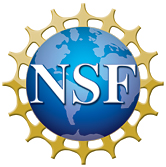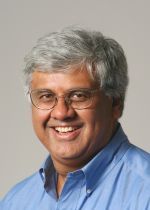2014 Conference on Decision and Game Theory for Security
GameSec 2014, the fifth Conference on Decision and Game Theory for Security will take place in Los Angeles, CA, USA on November 6-7, 2014.
News
- 2014-10-09: Technical program is available.
- 2014-10-06: Financial Support application deadline has been extended (under SUPPORT page)!
- 2014-10-05: Visa Guidelines are available under TRAVEL Page.
- Hotel Information is available under TRAVEL page!
- Notification date has been extended to Aug 19, 2014.
- Submission deadline has been extended to 23:59 EST June 30, 2014 (Firm)!
- Submission deadline has been extended to June 16, 2014!
- Submission page is now available - https://www.easychair.org/conferences/?conf=gamesec14
- Call for Papers is now available - [PDF]
Plenary Speakers
Day 1 |
|
|
Bud Mishra is a professor of computer science and mathematics at NYU’s Courant Institute of Mathematical Sciences, professor of human genetics at Mt. Sinai School of Medicine, and a professor of cell biology at NYU School of Medicine. He currently leads several groups working in biotechnology, bioinformatics, biomedicine, cyber security, data privacy, and data sciences. He is a fellow of IEEE, ACM and AAAS, a Distinguished Alumnus of IIT-Kgp, and a NYSTAR Distinguished Professor. From 2001-04, he was a professor at the Watson School of Biological Sciences, Cold Spring Harbor Lab; currently he is a QB visiting scholar at Cold Spring Harbor Lab. More information, including papers and presentation decks, is available on his web site, http://cs.nyu.edu/mishra/. |
Enigma of Arrival: Codes, Codons and Coding Abstract: Information-asymmetric games have been used to model evolutionary biology (codon evolution, multi-cellularity and cancer), computing (machine learning and data science), and the Internet (cyber security and insider threat). Interestingly, the opportunities for “deceptions” in such games are rampant, since the agents in such a game can adopt a signaling convention (separating equilibrium) that is suboptimal in terms of information transfer, but that is stable nonetheless. To address analogous problems in the cyber physical contexts, we use scenarios from biology to motivate and engineer various mechanisms for security, privacy and trust – for instance, by examining the evolution of the genetic code, which is nearly optimal in terms of information transfer, but is also universal and nearly immutable. Finally, we discuss a resulting design of a cyber security system and examine it at length via large-scale simulations. |
|
Day 2 |
|
|
S. Shankar Sastry is currently the Dean of Enginnering at University of California, Berkeley and the faculty director of the Blum Center for Developing Economies Dr. Sastry received his B. Tech from the Indian Institute of Technology, an MS, MA (Math), PhD in Engineering. from Berkeley. He has served on the faculties of MIT and Harvard. His areas of personal research are design of resilient network control systems, cybersecurity, autonomous systems (unmanned aerial vehicles), computer vision, nonlinear and adaptive control, control of hybrid and embedded systems and software.. Most recently he has been concerned with critical infrastructure protection in the context of leading a ten year NSF Science and Technology Center, TRUST (Team for Research in Ubiquitous Secure Technologies) Dr. Sastry is a member of the National Academy of Engineering and the American Academy of Arts and Sciences (AAAS) in 2004. He received an honorary M. A. from Harvard, honorary doctorate from the Royal Swedish Institute of Technology. He has been a member of the Air Force Scientific Advisory Board, and the Defense Science Board, among other national boards. He is currently on the corporate boards of C3-LLC, and HCL Technologies (India) and on the scientific advisory boards of Interwest Partners and GE. He has coauthored over 550 technical papers and 9 books He has supervised over 65 doctoral students and over 50 MS students to completion. His students now occupy leadership roles in several places and on the faculties of many major universities in the United States and abroad. |
Big Data Meets CPS Abstract: I believe that the scope of the research agenda of Cyber Physical Systems has now expanded to include the Internet of Things (IoT), Resilience and Cyber Security, and indeed analytics for Big Data arising from CPS Systems. I would like to expand on this theme in this talk: There has been a great deal of work in recent years on the evolution of “Action Webs”. By this we mean closing the loop around networked sensors. These networked control system (NCS) is fast becoming the next generation Cyber Physical Systems (CPS) infrastructure for a number of societal scale physical infrastructures such as power, water, building systems, etc. Societal Scale CPS systems need to be robust, fault tolerant and the able to operate through cyber-attacks. Thus, the agenda of Societal Scale CPS Systems very much expands on and the agenda of the Internet of Things. It is indeed the Internet of Things which is creating Societal Scale CPS Systems. Since we need these Societal Scale CPS systems to be “always on”, we need to build in the attributes of resilience and cyber security into these systems. Taxonomies of attack of Societal CPS systems are richer than those of traditional cybersecurity, because of the timing constraints and “closing the loop” attributes of our systems. Finally, the advent of Societal Scale CPS Systems is causing the emergence of some new pricing models and new services on shared CPS Infrastructure. We believe that the development of a theory of Big Data CPS systems needs to stand on the twin legs of Resilient NCS (RC) and Economic Incentivization for investing in high confidence systems design and operation (EI). |
|
Description
Recent advances in networking, communications, computation, software, and hardware technologies have revolutionized the information technology landscape. Indeed, this cyberspace has become an integral part of every person's daily life and the way we conduct business. Protecting the sensitive content of every nation's cyberspace infrastructure has thus become critical to ensure economic growth, prosperity, and advancement. However, the heterogeneous, dynamic, and large-scale nature of modern- day networked and information technology infrastructure warrants novel analytical and practical approaches for securing its assets and maintaining its trustworthiness.
Owing to its powerful analytical and modeling frameworks, game theory has recently emerged as a key tool for building resilient, secure, and dependable networked systems. Coupled with synergistic techniques such as dynamic control, mechanism design, and economics, game theory is expected to constitute the heart of a much needed science of security. The goal of the GameSec conference to gather original contributions that present theoretical and practical contributions that will build the knowledgebase in the science of security, in general, and game-theoretic security, in particular.
Conference Topics
The goal of this conference is to bring together academic and industrial researchers in an effort to identify and discuss the major technical challenges and recent results that highlight the connection between game theory, control, distributed optimization, economic incentives and real world security, reputation, trust and privacy problems in a variety of technological systems. Topics of interest include but are not limited to the following:
|
Conference Sponsors
We thank all our sponsors for their kind support.
- Conference Partner
- National Science Foundation (NSF)



